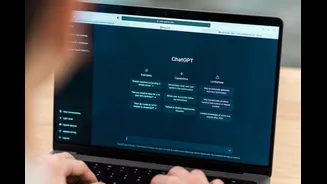The Core Problems
The realm of academic publishing, vital for knowledge dissemination, has evolved into a system fraught with difficulties. One of the primary concerns is the proliferation
of predatory journals. These journals, often appearing legitimate, exploit the publish-or-perish culture, charging fees without offering genuine peer review or editorial oversight. Consequently, substandard research floods the academic record, undermining the credibility of scholarly work. This practice is fueled by the pressure on researchers to publish frequently, incentivizing them to submit to any journal that will accept their work. Furthermore, the peer review process, meant to ensure quality, is often flawed due to the lack of standardized procedures and the heavy reliance on unpaid labor from busy academics. This setup can lead to delays, biases, and inconsistencies, hindering the timely and rigorous evaluation of research.
Publish or Perish Pressure
The 'publish or perish' mentality deeply impacts the academic sphere, imposing severe pressure on researchers. This relentless pressure forces academics to prioritize quantity over quality when it comes to publishing their work. This environment encourages researchers to submit articles to journals that accept almost anything. Because career advancement, grant applications, and institutional prestige often hinge on publication counts, the drive to publish frequently becomes paramount. This creates a situation where rigorous research takes a backseat to the relentless pursuit of publications. Moreover, this climate has fostered a system that places less value on other important academic activities such as teaching, mentoring, and contributing to public outreach. It also impacts mental health, where academics often work excessive hours and face intense competition, ultimately affecting the quality and reliability of the research itself. The system actively disincentivizes critical thinking and in-depth research.
Predatory Journals' Impact
The rise of predatory journals significantly damages the integrity of scholarly communication. These journals, disguised as legitimate publications, exploit the publish-or-perish culture by charging authors fees without providing proper peer review, editorial services, or rigorous quality control. This results in the proliferation of low-quality or even fraudulent research within academic databases. The lack of stringent review processes means that unsubstantiated claims and flawed methodologies can find their way into the scholarly record, thereby potentially misinforming other researchers, policymakers, and the public. Furthermore, these predatory journals often utilize deceptive practices, such as mimicking the names or websites of established journals to mislead authors into submitting their work. This deception, along with the easy acceptance of articles, degrades the reliability of academic literature, making it harder to distinguish between credible and unreliable research.
Rethinking the Model
Addressing the problems within academic publishing requires a shift towards more sustainable and ethical practices. Open access publishing, which makes research freely available to all, is a step in the right direction, though it can also be exploited if not properly managed. It has the potential to make knowledge accessible to a broader audience, including researchers and the public, thereby fostering greater collaboration and the faster dissemination of findings. The process of peer review needs to be reformed, and it should receive better support to improve the quality and fairness of evaluation. Implementing stricter guidelines and providing training for peer reviewers can enhance the thoroughness and rigor of evaluations. Additionally, there needs to be a move away from the over-reliance on journal impact factors as the main metric for evaluating research and researchers. The promotion of other metrics that assess research quality, such as citation analysis or the impact of the research in the real world, can create a healthier balance in the academic system.
Seeking Alternative Solutions
To overhaul the broken academic publishing model, several alternative solutions can be considered. Institutional repositories, where universities store and make the research of their scholars accessible, offer a way to disseminate research without the financial constraints of traditional publishing. Encouraging preprints, which are versions of articles posted online before peer review, also boosts the sharing of research findings quickly, allowing for greater collaboration. There's a growing movement advocating for peer review and other assessments as a critical part of the process. This would make the system more transparent. Funding agencies could change their focus and offer grants that prioritize the quality and impact of the research, rather than simply the volume of publications. Ultimately, a multifaceted approach that considers various models is crucial for creating a publishing system that values both accessibility and the integrity of the research process.














